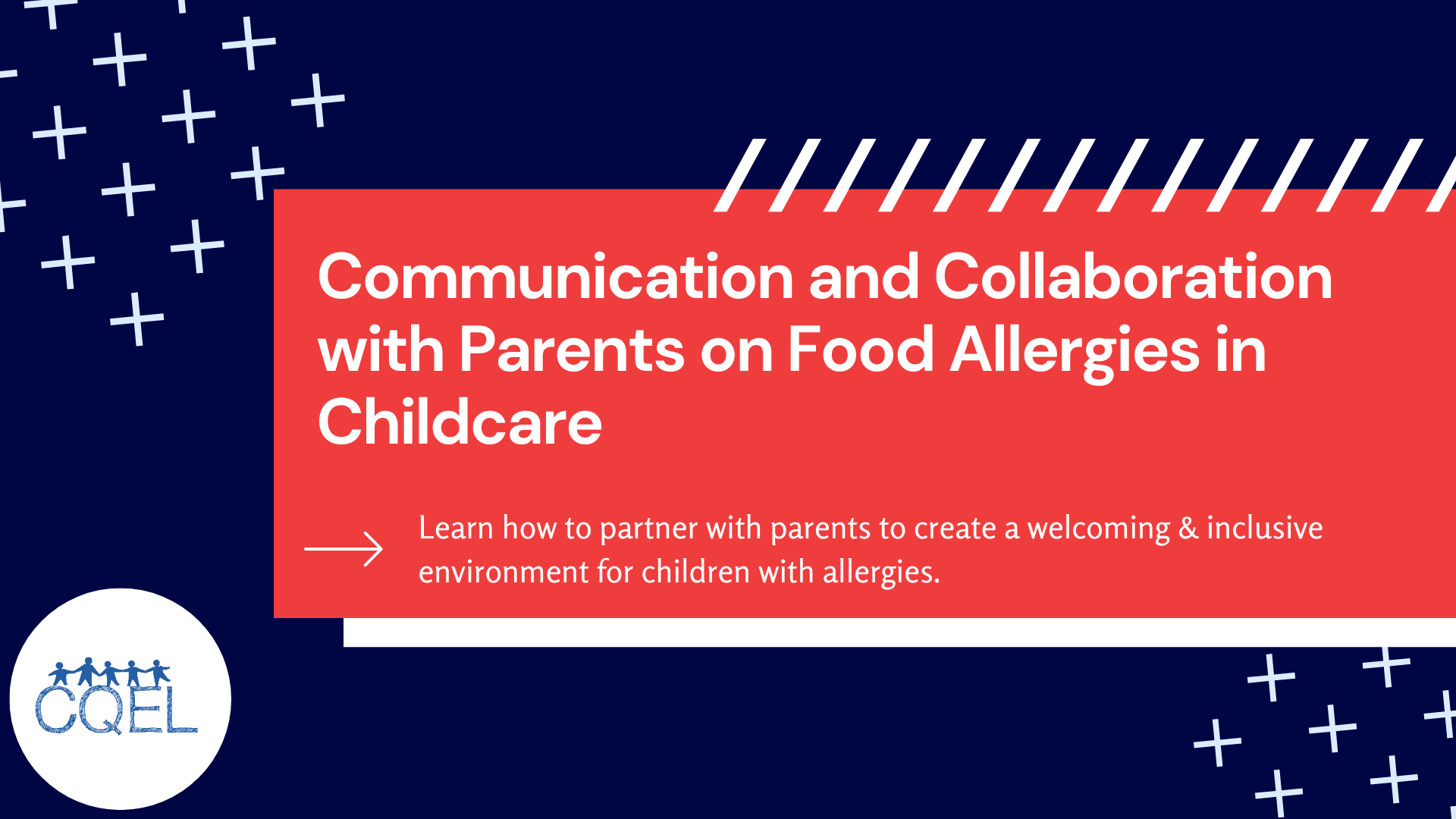Communication and Collaboration with Parents on Food Allergies in Childcare
Learn how to partner with parents to create a welcoming & inclusive environment for children with allergies.

Food allergies are a growing concern for parents and childcare providers alike. With the rising prevalence of allergies in children, creating a safe and inclusive environment in childcare settings is more important than ever. As an aspiring childcare provider in California, you have a crucial role to play in ensuring the well-being of all children in your care, including those with food allergies. The key? Effective communication and collaboration with parents.
Let's begin with understanding the difference between a food allergy and a food intolerance. A food allergy is an immune system response to a specific food protein. When a child with a food allergy ingests the allergen, their immune system mistakenly identifies it as a threat and triggers a reaction. Symptoms of allergic reactions can range from mild (itching, hives) to severe (anaphylaxis, a potentially life-threatening reaction). It's vital to recognize the signs of anaphylaxis, which can include difficulty breathing, swelling of the face and throat, and a rapid heartbeat. Early intervention is crucial in such situations.
So, how can we create a safe environment for children with food allergies? The first step is having a comprehensive food allergy action plan in place for each child with allergies. This plan, developed in collaboration with parents and a healthcare professional, should outline the child's specific allergies, potential symptoms, and emergency procedures. Open communication with parents is essential. Gather detailed information about the child's allergies, triggers, and the medications they carry (e.g., epinephrine auto-injectors). Once you have this information, share it with all childcare staff members and ensure everyone understands the action plan. Remember, knowledge is power – the more informed your staff is, the better equipped they are to respond to potential emergencies.
Communication goes beyond simply sharing information; it's about working together with parents to develop proactive strategies for managing allergies in the childcare setting. Discuss food-sharing policies with parents and establish clear guidelines for children bringing in snacks or lunches. Collaboration extends to celebrations as well. Work with parents to find creative ways to celebrate birthdays and holidays that are inclusive of children with allergies. Perhaps it's a non-food treat or an activity everyone can enjoy.
There are additional strategies you can implement to minimize the risk of allergic reactions. Clear labeling of all food items brought into the childcare setting is essential. Frequent handwashing by both children and staff is another effective way to prevent the spread of allergens. Consider establishing designated areas for food consumption to minimize cross-contamination on surfaces.
In California, childcare providers have a responsibility to ensure the safety of all children in their care. The California Department of Public Health (CDPH) offers information on food allergies and intolerances, including relevant regulations for childcare settings (https://www.cdc.gov/healthyschools/foodallergies/index.htm). Additionally, the Centers for Disease Control and Prevention (CDC) provides guidelines and resources for managing food allergies in school settings, which can be adapted for childcare settings as well (https://www.cdc.gov/healthyschools/foodallergies/index.htm).
Creating a safe and inclusive environment for children with food allergies requires a collaborative effort. By fostering open communication with parents, implementing proactive strategies, and utilizing available resources, you can ensure the well-being of all children entrusted to your care. Food Allergy Research & Education (FARE) offers a wealth of information and resources on food allergies, including specific guidance for childcare providers (https://www.foodallergy.org/resources). Remember, by working together, we can keep all our kids safe and give them the opportunity to thrive in a nurturing childcare environment.
